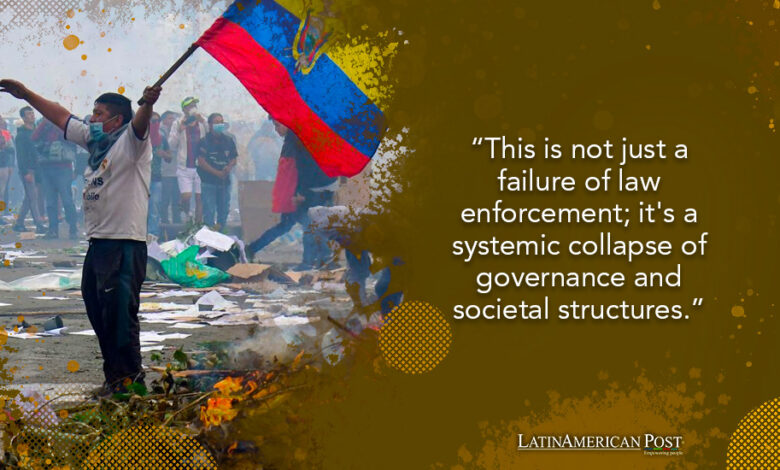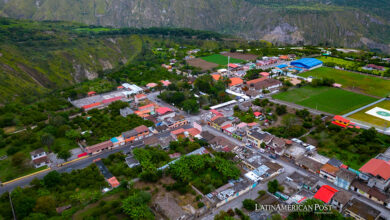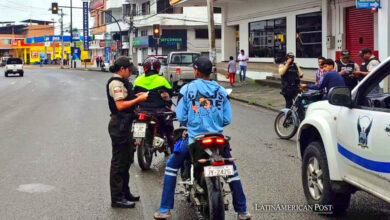Ecuador’s Crisis: Beyond the State of Emergency, Militarization, and Plebiscites

Ecuador is in turmoil. The recent wave of violence, epitomized by the dramatic hostage situation involving over 100 prison staff and the armed invasion of a live TV broadcast, has brought the South American nation to a tipping point. President Daniel Noboa’s swift response betrays a lack of depth in understanding and addressing the roots of this crisis. His measures – a military crackdown and a security-focused plebiscite – are superficial band-aids on a festering wound.
Challenges Mount for President Noboa: A Troubling Surge in Violence
President Noboa, who rose to power on a promise to curb violence, is facing an unprecedented challenge. The doubling of violent deaths in 2023 compared to the previous year and the assassination of an anti-corruption presidential candidate starkly illustrate the severity of the situation. However, the administration’s response, particularly the 60-day state of emergency and the proposed referendum, seem like weak echoes of past attempts that have failed to yield significant results.
The crux of the issue lies in the growing influence of cocaine trafficking gangs, who have created a parallel power structure within the country. The state’s weak control over prisons has allowed these gangs to consolidate power, turning correctional facilities into war zones. This is not just a failure of law enforcement; it’s a systemic collapse of governance and societal structures.
Flaws in Noboa’s “Phoenix Plan”
Although ambitious in its scope and funding, Noboa’s “Phoenix Plan” for security is fundamentally flawed. The plan focuses too heavily on aggressive solutions – new intelligence units, tactical weapons, and high-security prisons – and overlooks the need for holistic, community-centric approaches.
Simply pouring money into the military and law enforcement, as evidenced by the $800 million price tag and the $200 million in weapons from the United States, is not a sustainable solution. It’s a strategy that treats the symptoms while ignoring the disease.
The recent flare-up of violence, triggered by the disappearance of gang leader Adolfo Macias and subsequent prison riots and street violence, is a clear indicator that the gangs are not just criminal entities but are deeply embedded within the social fabric of Ecuador. A militarized approach will only lead to a cycle of violence, retaliations, and further entrenchment of these groups.
Moreover, declaring a state of emergency, as Noboa’s predecessor Guillermo Lasso did, has shown limited effectiveness. Military patrols and curfews may offer temporary relief, but they do not address the underlying issues of poverty, corruption, and systemic failures that fuel the growth of these gangs. The state of emergency is a short-term fix that may even exacerbate the situation by creating an environment of fear and repression.
Plebiscite: A Step in the Right Direction, But…
The planned security-focused plebiscite, which includes questions on extraditions and asset seizures, is a step in the right direction but still needs to catch up. While engaging the public in these decisions is crucial, the referendum seems more like a political maneuver to gain public approval than a genuine attempt to involve citizens in the fight against crime. It also fails to address the need for judicial reforms, witness protection programs, and rehabilitation initiatives that are essential in breaking the cycle of crime and violence.
Ecuador needs a multi-faceted approach that combines vigorous law enforcement with social, economic, and political reforms. This includes investing in education, job creation, and community development programs that provide alternatives to joining gangs. Strengthening the judicial system, ensuring transparency in government operations, and protecting human rights should be at the forefront of this strategy.
Community Policing: A More Effective Alternative
Community policing, where law enforcement works closely with local communities to identify and solve problems, can be more effective than military interventions. This approach builds trust between the police and the public, leading to more sustainable crime prevention.
Furthermore, international cooperation is crucial in tackling drug trafficking. However, this should not be limited to military aid but should include intelligence sharing, joint investigations, and support for social programs that address the root causes of drug production and trafficking.
Also read: Rescue Highlights The Perilous Journey of Venezuelan Migrants in Mexico
In conclusion, while President Noboa’s immediate response to the crisis is understandable, it’s a far cry from the comprehensive strategy that Ecuador desperately needs. The focus should shift from a security-centric approach to one encompassing social, economic, and political reforms.
Only through a balanced and multi-dimensional strategy can Ecuador hope to overcome this crisis and pave the way for a peaceful and prosperous future. The time for half-measures is over; Ecuador needs bold, innovative actions to heal its wounds and move forward.





